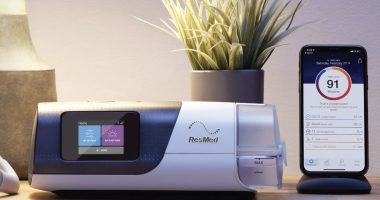- Prescient Therapeutics (PTX) says recent results from in silico testing substantially de-risk its entire platform
- The immunogenicity of the company’s OmniCAR key binding components, SpyTag and SpyCatcher, was tested to determine if either component has the potential to cause adverse immune responses that could compromise the therapy
- The results demonstrated both components have very low immunogenicity, which the company says triggers its next steps for development
- PTX says it’s on track to deliver the next important milestone for developing OmniCAR programs for acute myeloid leukemia, solid tumours and the most common form of brain cancer
- Prescient Therapeutics last traded at 23 cents on July 2
Prescient Therapeutics (PTX) says recent results from testing show its entire platform has been substantially de-risked.
In silico immunogenicity testing of the company’s OmniCAR key binding components, SpyTag and SpyCatcher, evaluated the immune response against a new therapy, affecting safety and efficacy.
OmniCAR is a universal immune receptor platform enabling controllable T-cell activity and multi-antigen targeting with a single cell product. Prescient is developing OmniCAR programs for acute myeloid leukemia, solid tumours like breast, ovarian and gastric cancers, and glioblastoma multiforme, the most common form of brain cancer.
The immunogenicity of SpyTag and SpyCatcher was tested in silico by an independent US research provider to determine if either component has the potential to cause adverse immune responses that could compromise the therapy.
The results demonstrated both SpyTag and SpyCatcher have very low immunogenicity — significantly lower than a panel of humanised therapeutic antibodies already approved for human use.
In the case of CAR-T cell therapies, high levels of immunogenicity can impact CAR-T cell expansion and persistence, which can impact the overall safety and response to the treatment.
The company says the positive results re-risk the entire OmniCAR platform and trigger the next steps for development.
Prescient’s CEO and Managing Director, Steven Yatomi-Clarke, said the immunogenicity results could not have been better.
“In short, it gives us confidence that if these therapies are ultimately delivered to patients, that their immune systems will not impair the therapy itself. This is essential not only for Prescient’s three in-house OmniCAR programs, but also for potential external collaborators, who consider immunogenicity very stringently.”
The new development follows Prescient finishing manufacturing and delivering critical components of the OmniCAR platform for several cancer targets and lentiviral vectors used to produce CAR-T cells.
The company says its development plans are on schedule to deliver the next important milestones.
“Together with our talented research team at Peter Mac, we are excited to progress our inhouse next generation cell therapies for cancer patients,” said Mr Yatomi-Clarke.
Prescient Therapeutics last traded at 23 cents on July 2.







